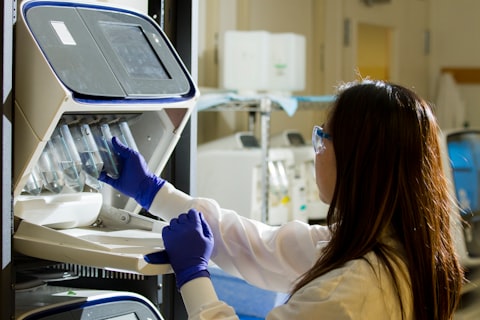Outline:
-
Introduction
- Importance of the liver in the human body
- Thesis statement
-
Anatomy of the Liver
- Structure and location of the liver
- Lobes and segments of the liver
-
Functions of the Liver
- Metabolic functions
- Detoxification process
- Production of bile
- Storage of nutrients
-
Metabolic Functions
- Protein metabolism
- Carbohydrate metabolism
- Fat metabolism
-
Detoxification Process
- Breakdown of toxins
- Role of enzymes in detoxification
-
Production of Bile
- Importance of bile in digestion
- Bile secretion and its role in fat digestion
-
Storage of Nutrients
- Storage of glycogen, vitamins, and minerals
- Regulation of blood sugar levels
-
Common Liver Disorders
- Hepatitis
- Cirrhosis
- Fatty liver disease
-
Symptoms of Liver Dysfunction
- Jaundice
- Fatigue
- Abdominal pain
-
Diagnosis of Liver Disorders
- Blood tests
- Imaging tests
- Liver biopsy
-
Treatment Options
- Medications
- Lifestyle changes
- Liver transplant
-
Preventive Measures
- Healthy diet
- Limiting alcohol consumption
- Regular exercise
-
Impact of Diet on Liver Health
- Foods that support liver function
- Foods to avoid for liver health
-
Research and Innovations in Liver Care
- Advancements in treatment options
- Future prospects in liver disease management
-
Conclusion
- Recap of the liver's vital functions
- Emphasis on the importance of liver health
The Vital Role of Liver Function
The liver is a remarkable organ that performs a multitude of
essential functions in the human body, contributing significantly to
overall health and well-being. From metabolic processes to
detoxification and bile production, the liver plays a crucial role in
maintaining homeostasis and supporting various bodily functions.
Anatomy of the Liver
The liver, the largest internal organ in the human body, is located
in the upper right abdomen beneath the diaphragm. It consists of four
lobes and segments that work together to perform its functions
efficiently.
Functions of the Liver
Metabolic Functions
The liver is involved in various metabolic processes, including
protein metabolism, carbohydrate metabolism, and fat metabolism,
essential for energy production and nutrient utilization.
Detoxification Process
One of the liver's primary functions is detoxification, where it
breaks down toxins and harmful substances, ensuring they are safely
eliminated from the body. Enzymes play a crucial role in this
detoxification process.
Production of Bile
The liver produces bile, a greenish-yellow fluid that aids in
digestion by emulsifying fats and facilitating their absorption in the
intestines. Bile is stored in the gallbladder and released into the
small intestine when needed.
Storage of Nutrients
The liver acts as a storage reservoir for essential nutrients such as
glycogen, vitamins, and minerals. It also plays a key role in
regulating blood sugar levels by storing or releasing glucose as needed.
Common Liver Disorders
Hepatitis
Hepatitis is the inflammation of the liver, often caused by viral
infections (hepatitis A, B, C) or excessive alcohol consumption, leading
to liver damage and dysfunction.
Cirrhosis
Cirrhosis is a late stage of scarring of the liver caused by various
liver diseases and conditions such as chronic alcoholism, hepatitis B
and C, and fatty liver disease, impairing liver function.
Fatty Liver Disease
Fatty liver disease occurs when excess fat accumulates in the liver,
leading to inflammation and liver damage. It can be caused by obesity,
high cholesterol, or excessive alcohol consumption.
Symptoms of Liver Dysfunction
Common symptoms of liver dysfunction include jaundice (yellowing of
the skin and eyes), fatigue, abdominal pain, swelling in the abdomen,
and dark urine.
Diagnosis of Liver Disorders
Liver disorders are diagnosed through blood tests to assess liver
function, imaging tests such as ultrasound or MRI to visualize the
liver, and liver biopsy to examine liver tissue for abnormalities.
Treatment Options
Medications
Medications may be prescribed to manage symptoms, reduce inflammation, or treat underlying causes of liver disorders.
Lifestyle Changes
Adopting a healthy lifestyle, including a balanced diet, regular
exercise, and avoiding alcohol and tobacco, can help improve liver
health and prevent further damage.
Liver Transplant
In severe cases of liver failure, a liver transplant may be necessary to replace a damaged liver with a healthy donor liver.
Preventive Measures
Maintaining liver health involves adopting preventive measures such
as consuming a healthy diet rich in fruits, vegetables, and whole
grains, limiting alcohol consumption, staying hydrated, and engaging in
regular physical activity.
Impact of Diet on Liver Health
Foods that Support Liver Function
Certain foods such as leafy greens, fatty fish, nuts, and seeds are
beneficial for liver health as they provide essential nutrients and
antioxidants that support liver function.
Foods to Avoid for Liver Health
Highly processed foods, sugary beverages, excessive alcohol, and
foods high in saturated fats should be limited to prevent liver damage
and maintain optimal liver health.
Research and Innovations in Liver Care
Ongoing research and innovations in liver care focus on developing
new treatment options, improving diagnostic techniques, and exploring
potential therapies for liver diseases, offering hope for better
outcomes and quality of life for patients with liver disorders.
Conclusion
In conclusion, the liver's vital functions are indispensable for
maintaining overall health and well-being. Understanding the importance
of liver function, recognizing the signs of liver dysfunction, and
taking proactive steps to promote liver health through a healthy
lifestyle and medical care are essential for preserving liver function
and ensuring optimal health. By prioritizing liver care and staying
informed about advancements in liver research and treatment, individuals
can safeguard their liver health and enhance their quality of life.




تعليقات
إرسال تعليق